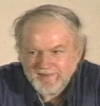 Sheldon Krimsky
Sheldon Krimsky is professor of Urban & Environmental Policy at Tufts
University. He received his bachelors and masters degrees in physics from
Brooklyn College, CUNY and Purdue University respectively, and a masters and
doctorate in philosophy at Boston University.
Professor Krimsky's research has focused on the linkages between
science/technology, ethics/values and public policy. He is the author of six
books: Genetic Alchemy: The Social History of the Recombinant DNA Controversy
(MIT Press) and Biotechnics and Society: The Rise of Industrial Genetics
(Praeger). He is co-author of Environmental Hazards: Communicating Risks as a
Social Process (Auburn House), and Agricultural Biotechnology and the
Environment: Science, Policy and Social Values (Univ. Illinois), and co-editor
of a collection of papers titled Social Theories of Risk (Praeger). Professor
Krimsky has published over 100 essays and reviews that have appeared in many
books and journals. His current book is about endocrine disrupters and is titled
Hormonal Chaos: The Scientific and Social Origins of the Environmental
Endocrine Hypothesis (Johns Hopkins Univ. Press, 1999).
Professor Krimsky served on the National Institutes of Health's Recombinant
DNA Advisory Committee from 1978-1981. He was a consultant to the Presidential
Commission for the Study of Ethical Problems in Medicine and Biomedical and
Behavioral Research and to the Congressional Office of Technology Assessment.
He participated on a special study panel for the American Civil Liberties Union
that formulated a policy on civil liberties and scientific research. Professor
Krimsky was chairperson of the Committee on Scientific Freedom and
Responsibility for the American Association for the Advancement of Science for
1988-1992. Currently he serves on the Board of Directors for the Council for
Responsible Genetics and as a Fellow of the Hastings Center on Bioethics.
Professor Krimsky has been elected Fellow of the American Association for
the Advancement of Science for "seminal scholarship exploring the
normative dimensions and moral implications of science in its social
context."
|
|
To return to previous topic, click on your browser's 'Back' button. |
Email
link |
|